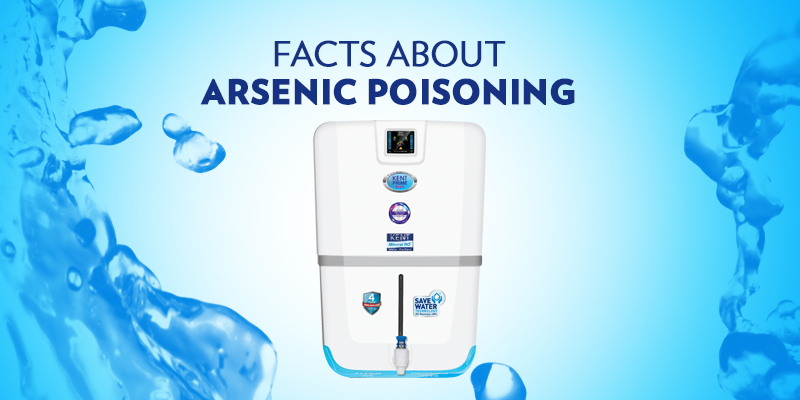Why do you Need to be Concerned about Arsenic in Drinking water?
Staying hydrated helps in dealing with a number of health problems. However, the quality of water that you drink can have an impact on your health. Polluted water can lead to a number of health problems and do more harm than good. In addition to the biological impurities, water also has a number of chemical impurities such as arsenic and chlorine. The presence of excess arsenic can be dangerous to your health. So, in this blog, we discuss in detail arsenic poisoning and why you need to be concerned about it.
What is Arsenic Poisoning?
Ingestion of high levels of arsenic leads to arsenic poisoning, which is also known as arsenicosis. Arsenic is extremely poisonous for humans and is difficult to detect as you can’t smell or taste it. Though arsenic is a naturally occurring metal, it also comes in some inorganic or man-made forms, which are used in agriculture, mining, and manufacturing. People living or working in industrial areas are at a higher risk of arsenic poisoning. The most common way of exposure to high levels of arsenic poisoning is by drinking contaminated water. India is among the other countries that have high levels of arsenic-containing groundwater.
Symptoms of Arsenic Poisoning
Long-term exposure to arsenic can lead to severe symptoms. Some of the symptoms of arsenic poisoning are:
- Swollen skin
- Abdominal pain
- Nausea and vomiting
- Diarrhea
- Muscle cramps
- Tingling of fingers or toes
- Persistent digestion issues
The first signs of long-term symptoms tend to occur initially on the skin and the symptoms can take up to five years of exposure, according to the World Health Organization.
Common Causes of Arsenic Poisoning
Contaminated groundwater is one of the most common sources of arsenic poisoning. As arsenic is already present in groundwater, it can easily seep into groundwater and contaminate it. In addition, contaminated water from industrial sites can easily seep into groundwater and contaminate it. Some other causes of arsenic poisoning include:
- Breathing air that contains arsenic
- Living close to industrial areas
- Exposure to Landfills or waste sites
- Eating arsenic-contaminated food
The Dangers of Arsenic Poisoning
Arsenic poisoning can lead to a number of health problems, which can be life-threatening at times. Arsenic poisoning can lead to bladder cancer, blood cancer, liver cancer, lung cancer, prostate cancer, and skin cancer. In addition, arsenic poisoning can lead to a number of other health problems such as diabetes, heart diseases, and neurotoxicity. In pregnant women, arsenic poisoning can lead to fetal complications and birth defects.
Ways to Deal with Arsenic Poisoning
An effective way to deal with arsenic poisoning is by using a water purifier. A purifier that uses a combination of RO+UV+UF removes chemical as well as biological impurities so that you stay safe. The need for an RO water purifier is higher if you live close to industrial areas, which are at a higher risk of arsenic poisoning. The water purifiers from KENT use a combination of technologies to ensure that you drink completely safe water. Find out more about KENT RO water purifiers here.





